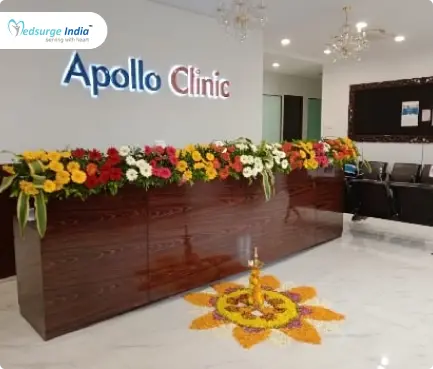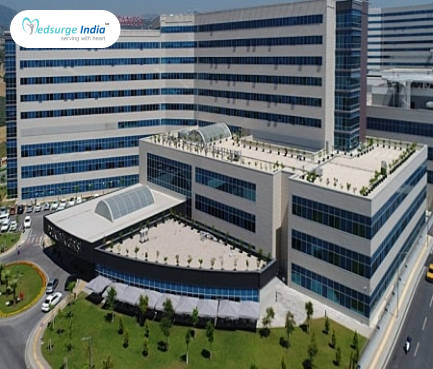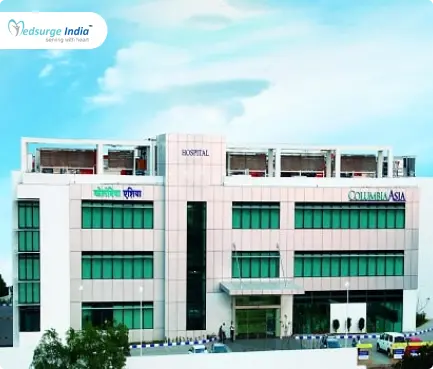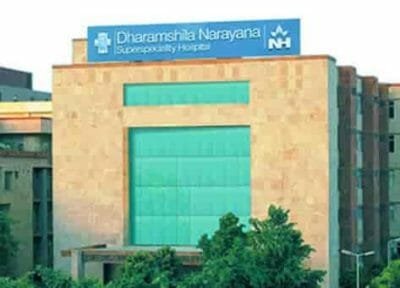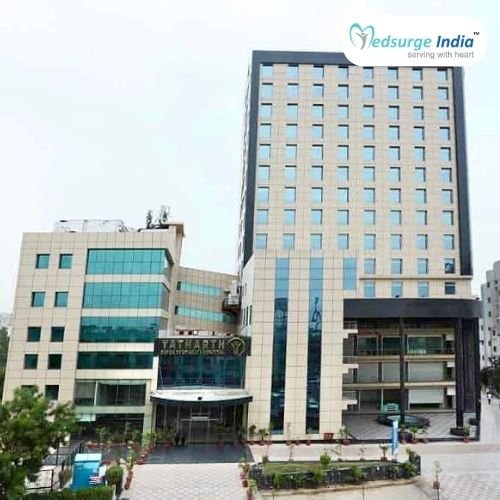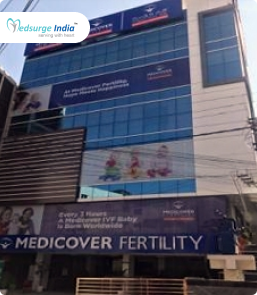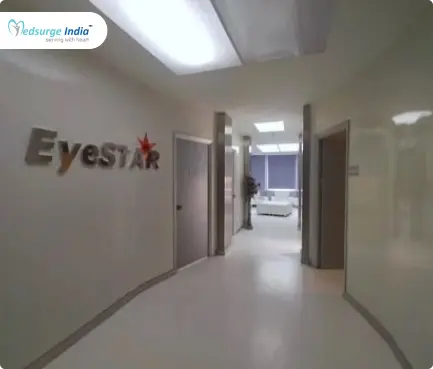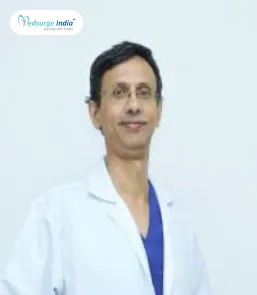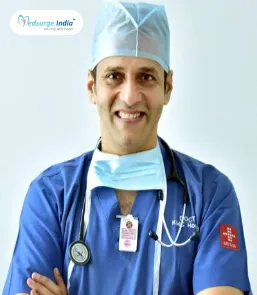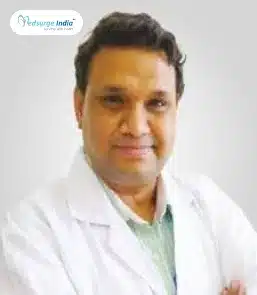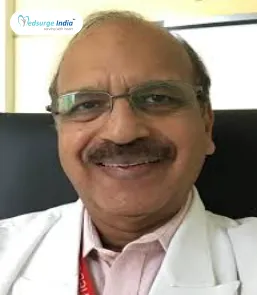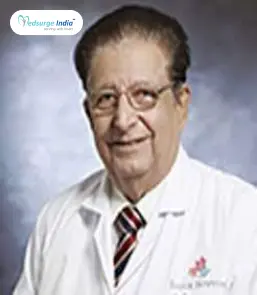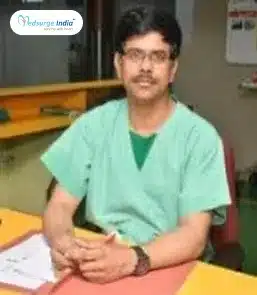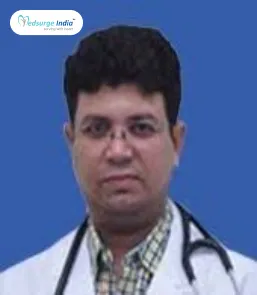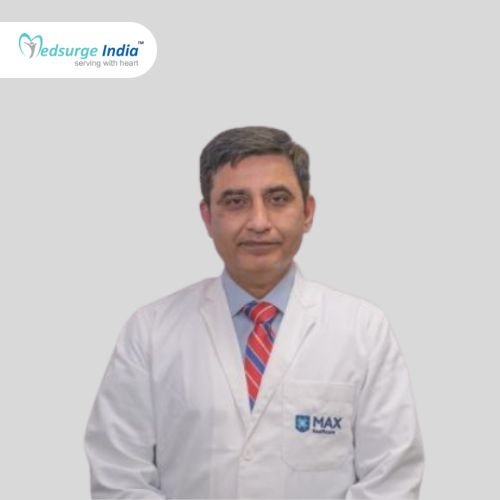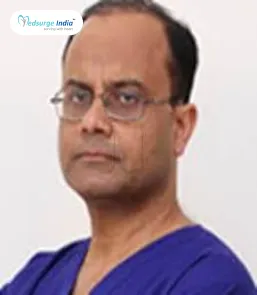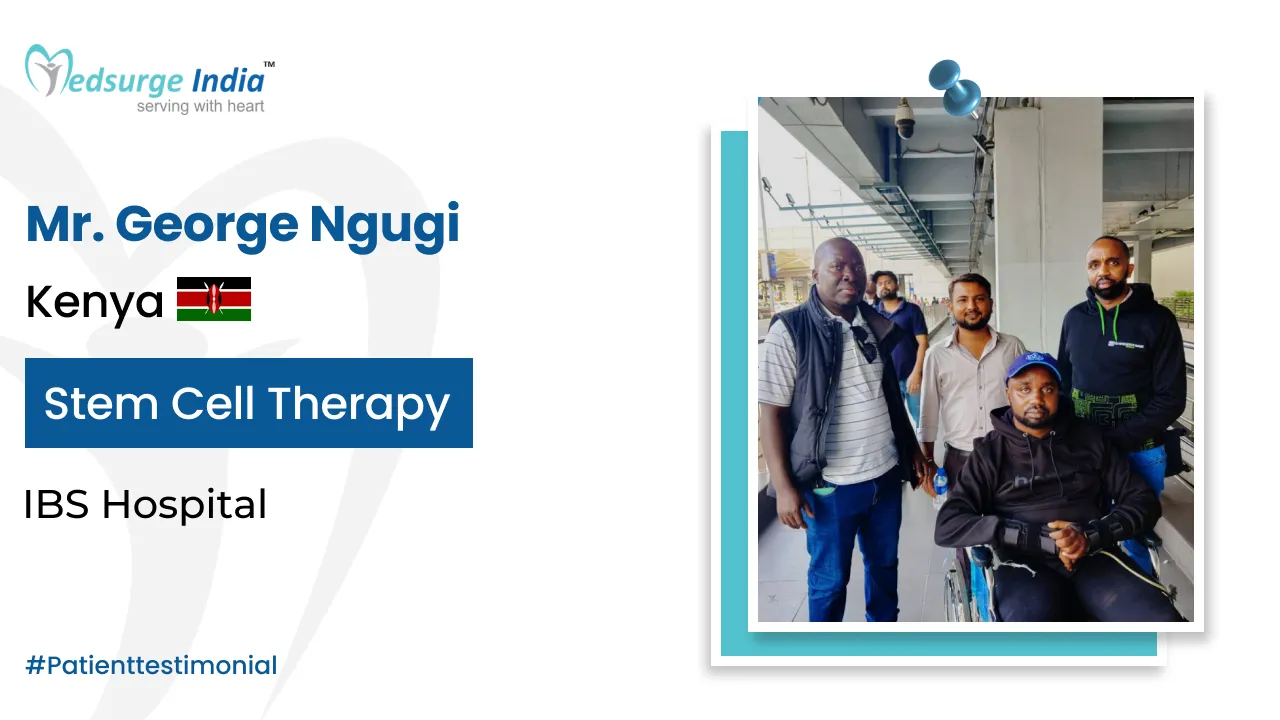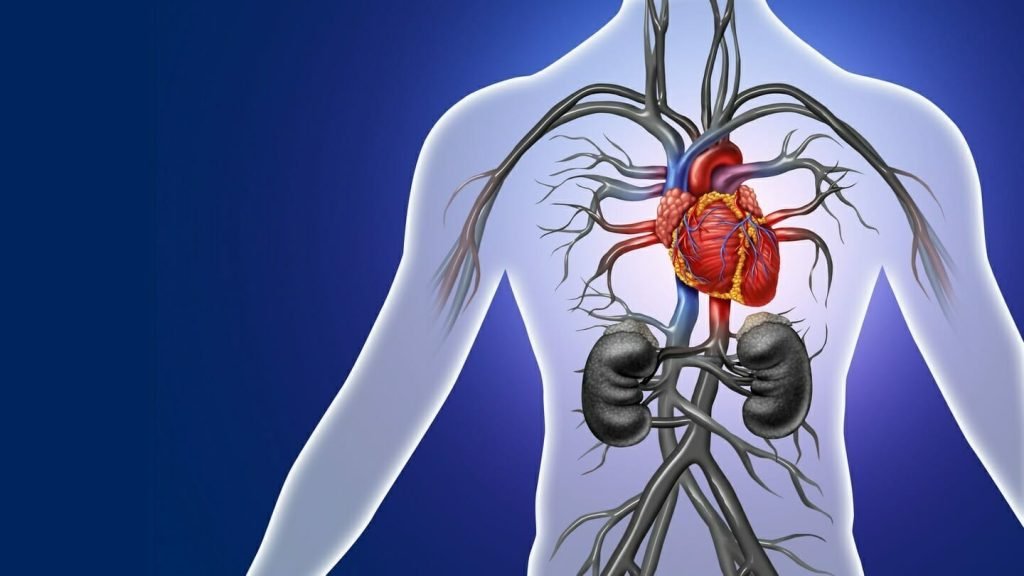
Aortic dissection is a life-threatening condition in which the inner layer of the body’s major artery tears (aorta). The inner and middle layers of the aorta split as blood rushes through the tear (dissect). Aortic dissection is generally fatal if blood passes through the exterior aortic wall. Therefore Aortic Dissection Repair Surgery in India is performed to repair the vessel and avoid the patient’s death.
Damaged parts of the aorta are removed during surgery, and the damaged vessel is often replaced with a synthetic graft. The goal of surgical treatment for aortic dissection is to remove the aorta’s most severely damaged segments and prevent blood from entering the tear.
A Cardiac Surgeon and an anesthesiologist are the best doctors to visit for Aortic Dissection Repair Surgery in India.
What Is an Aortic Dissection?
The primary artery that delivers oxygen-rich blood away from your heart to the rest of your body is the aorta. An inner layer (intima), a middle layer (media), and an outside layer (media) make up the wall of your aorta (adventitia).
When a tear occurs in the inner layer of a weaker part of your aorta, it causes an aortic dissection. The inner and middle layers of the tear split (“dissect”) as blood rushes through it. Normal blood flow to sections of your body may be reduced or interrupted when misdirected blood flows between tissue layers, or the aorta may rupture completely.
Aortic dissection is a life-threatening condition that can result in sudden death if not treated immediately. There are two main types of Aortic Dissection:
1. Stanford Type A Aortic Dissection: This type of aortic dissection happens in the initial section of the aorta, closest to the heart, and can be life-threatening right away. The first segment of the aorta where the tear began frequently needs immediate open-heart surgery to repair or replace.
This is a more common type of aortic dissection than Type B, and the aorta dissection tends to run the entire length of the aorta.
2. Stanford Type B Aortic Dissection: This type of aortic tear starts further down the aorta and away from the heart. This dissection frequently extends from the descending aorta into the abdominal segment (abdominal aorta), but it does not affect the first part of the aorta in the front of the chest, as does the type A dissection.
Depending on where the dissection is located and whether or not it is cutting off blood flow to your organs, surgery may or may not be required right away. These operations usually can be performed with a stent-graft device inserted into the aorta.
Aortic Dissection Repair Surgery Cost in India
Aortic Dissection Repair Surgery Cost in India starts from Rs. 6 Lakh (7200 USD). The patient is required to spend at least 3 days in the hospital after the surgery. The diagnosis and the facilities the patient chooses will determine the overall cost of the therapy.
Aortic Dissection Repair Surgery Cost in Different Cities in India:
| Cities | Starting Price |
| Delhi | Rs. 5,98,000 (7200USD) |
| Gurgaon | Rs. 5,98,000 (7200USD) |
| Noida | Rs. 5,73,500 (6900USD) |
| Mumbai | Rs. 5,90,000 (7100USD) |
| Hyderabad | Rs. 5,73,500 (6900USD) |
| Chennai | Rs. 5,90,000 (7100USD) |
| Kolkata | Rs. 5,73,500 (6900USD) |
| Bangalore | Rs. 6,06,000 (7300USD) |
Note: Please be aware that the costs listed are only an indication of what the treatment will cost initially and may change depending on a number of variables.
Types of Treatment Aortic Dissection Repair Surgery In India
| Treatment | Starting Price |
| Open-Heart Surgery | Rs. 2,91,000 (3500USD) |
| Endovascular Surgery | Rs. 3,24,000 (3900USD) |
| Valve Sparing Surgery | Rs. 3,16,000 (3800USD) |
Factors That Can Affect Aortic Dissection Repair Surgery Cost in India
The standard and excellence of medical treatment and amenities are comparable to those of the most prominent healthcare facilities in the world, even after deducting the cost of lodging, meals, and transportation. Following here are some variables that can affect Aortic Dissection Repair Surgery Cost in India:
- Medication costs.
- Duration of treatment.
- Geographical location.
- Hospitalization expenses.
- Government policies and subsidies.
- Medical tourism packages.
- Hospital reputation and infrastructure.
- The expertise and experience of medical professionals.
- The type and frequency of diagnostic procedures.
- The choice of treatment modality.
The most affordable Aortic Dissection Repair Surgery Cost in India is offered to patients worldwide by Medsurge India, under the supervision of highly qualified medical professionals.
How Is Aortic Dissection Diagnosed?
If emergency surgery is required, an aortic dissection must be diagnosed quickly. The medical team must evaluate whether you have an aortic dissection or other health disorders that create similar symptoms, such as a heart attack or stroke. The following tests can be ordered:
- Chest X-Ray
- CT Scan
- Transthoracic echocardiogram
- MRI
- Transesophaegal echocardiogram
Read More – Aortic Valve Replacement Cost in India
Get Free Cost Estimation
Procedure
What Is the Procedure for Repairing an Aortic Dissection?
There are several options for repairing or replacing a section of the aorta that has been damaged by a dissection. The procedure chosen will be determined by factors such as the location of the dissection, the amount of aorta that needs to be repaired or replaced, and your overall health. Your surgeon will decide which of the following procedures is best for you based on your specific circumstances:
Open-Heart Surgery
Making a 7- to 10-inch incision over the middle of the sternum, or breastbone, and separating the sternum to provide access to the heart is required to treat aortic dissection. In rare circumstances, a less invasive procedure with a smaller sternal incision may be possible. In either situation, the injured piece of your aorta is replaced with a graft, which is a tube the same size as your aorta made of a strong artificial material like Dacron that is sutured or sewed, into place.
During the process, your heart will be stopped from beating so that the operation can be performed in a motionless and bloodless environment; while your heart is stopped, a device called a heart-lung bypass machine will take over your heart’s function and keep your circulation going.
Endovascular Surgery
Patients with a descending aorta dissection may benefit from this procedure. This minimally invasive procedure involves making a couple of small incisions in your groin blood vessels, inserting long, thin tubes known as catheters through the vessels to the point where your dissection is located, and then using X-ray guidance and long, thin instruments threaded through the catheters to place a small mesh tube known as a “stent graft” inside the affected portion of the vessel.
Endovascular surgery can occasionally be performed with the patient under local anesthesia rather than general anesthesia in certain conditions; it also does not require hypothermic circulatory arrest or the use of a heart-lung bypass machine. Because this method avoids opening the chest at all, it usually results in a significantly faster recovery.
Valve Sparing Surgery
It can be considered for procedures on the aortic root, the section of the aorta nearest to the heart. This treatment simply replaces the injured segment of the aorta, not the aortic valve; it is thus only appropriate for individuals who have an undamaged or repairable aortic valve. A composite transplant is an approach that involves not only replacing the dissected part of the aorta but also replacing the aortic valve with a mechanical valve.
Read More – Know Everything About Transcatheter Aortic Valve Implantation In India
What Are the Risks of Aortic Dissection Repair?
The tear can have an impact on your brain, lungs, arms, legs, and heart over time. This is determined by the location of the tear in your aorta. Treatment is also determined by the location of the tear. If the tear is on the ascending aorta, surgery will almost certainly be required. This is the section of the aorta that runs through your chest and up to your head.
Aortic dissection is caused by a number of reasons, including:
- High Blood pressure
- An accident-related injury
- Genetic disorders that are passed on via the generations
- Atherosclerosis
- Aortic Aneurysm
- Heart problems due to structural issues
- Smoking
Other risks may exist, depending on your medical condition. Before the procedure, make sure to share any concerns you have with your healthcare professional. Problems might arise with any procedure. The following are some examples of potential complications:
- Stroke
- Cardiac Arrest
- Infection of lungs
- Risk of Anesthesia
- Bleeding
- Damage to internal organs
- Death
How Prevention of Aortic Dissection Is Done?
Many of the factors that raise the risk of aortic dissection, such as being born with specific heart diseases, connective tissue disorders, or genetic triggers linked to a family history of aortic dissection, cannot be changed. However, as with many other medical conditions and diseases, you can reduce some of your risks by altering the risk factors that can be controlled. Among the concerns are:
- Lowering high blood pressure to a target of 120/80 mm/Hg with medication, dietary modifications, and other treatments suggested by your doctor.
- Maintaining a healthy weight while quitting smoking/using tobacco products.
- Wearing your seat belt to protect your chest from damage in the event of an accident.
Visiting your doctor for routine check-ups and any other time you notice a change in your health.
It’s important to screen first-degree relatives of someone who has had an aortic dissection for their risk of developing the aortic disease. Before an aortic event happens, it can be properly monitored and treated.
Conclusion
It’s possible that you’ll require at least one month to recover following your surgery. For the first week, you will be in the hospital. Until your vital signs are stable, you will most likely be in the intensive care unit (ICU). Before going home, you will be transferred to a regular nursing unit to finish your treatment. You may require medications for nausea, pain, and discomfort throughout your hospital stay.
Make arrangements for someone to drive you home. It’s possible that you shouldn’t get behind the wheel immediately away. Inquire with your provider about when you’ll be able to drive again.
The Most Important Frequently Asked Questions
Q: How Long Does Aortic Dissection Surgery Take?
A: A typical open-heart surgery lasts 4 to 6 hours, with some cases lasting up to 8 hours; patients are then kept under general anesthesia for another 4 to 6 hours.
Q: the Most Common Cause of Aortic Dissection Is a Ruptured Aorta.
A: High blood pressure that is uncontrolled (hypertension) Atherosclerosis (hardening of the arteries) (atherosclerosis) artery that is weakened and bulging (aortic aneurysm).
Q: Which Kind of Aortic Dissection Is the Most Dangerous?
A: When a tear forms in the ascending region of the aorta just as it branches from the heart, it is known as Type A dissection, whereas Type B dissection affects the lower aorta. While Type A dissection is the more deadly type, early discovery and therapy greatly improve the odds of survival.
Q: Is It Possible to Return to Regular Life Following an Aortic Dissection?
A: Many patients question when it is safe to resume their prior lifestyle after a dissection. You can live a long, full life following a dissection if you keep your blood pressure under control and limit your physical activity. This would include going back to work in most cases.
Q: Is Aortic Dissection a Life-Threatening Condition?
A: Aortic dissection causes up to 40% of patients to die very rapidly, and the chance of death increases by 3-4 percent for every hour the problem is left untreated.
Top Hospitals for Aortic Dissection Repair Surgery in India
Top Doctors for Cardiology And Cardiac Surgery
Dr A Sharath Reddy
Senior Consultant
Experience: 19 Years
Medicover Hospital, Hitec City
Hyderabad, India
Dr. Rohit Goel
Interventional Cardiologist, Consultant MBBS, MD, DM
Experience: 9 years of experience
Fortis Memorial Research Institute, Gurgaon
Gurgaon, India
Dr. Joyanta Ghosh
Senior Consultant
Experience: 10+ years of experience
NH Rabindranath Tagore International Institute of Cardiac Sciences, Kolkata
Kolkata, India
Dr. Sridhara G
Consultant
Experience: 27 years of experience
Manipal Hospital (Old Airport Road) Bangalore
Bangalore, India
Dr. Padmanabh Kamath
Senior Consultant
Experience: 28+ years of experience
KMC Hospital, Hampankatta, Mangaluru
Mangaluru, India
Dr. Akhil Kumar Rustagi
Senior Consultant
Experience: 17 years of experience
Yatharth Super Specialty Hospital, Greater Noida
Noida, India
Dr. S. K. Jain
Associate Director
Experience: 30 years of experience
Medanta – The Medicity, Gurgaon
Gurgaon, India
Dr. Arup Kumar Ghosh
Senior Consultant
Experience: 20+ years of experience
NH Rabindranath Tagore International Institute of Cardiac Sciences, Kolkata
Kolkata, India



